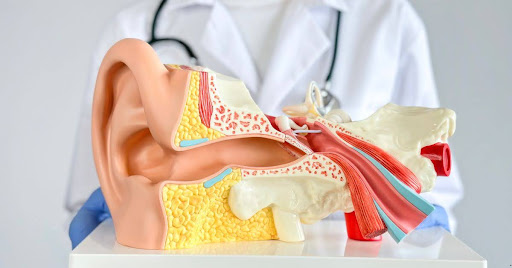Who Is an ENT Specialist? Signs You Should See One
2 min read
By DocGenie , Published on - 11 April 2025
If you’ve ever had recurring ear infections, sinus problems, or persistent throat issues, chances are you’ve been referred to an ENT. But who is an ENT specialist, and what exactly do they do? Understanding their role can help you get the right care at the right time.
What Is ENT and What Does It Stand For?

ENT stands for Ear, Nose, and Throat, also known medically as Otolaryngology. It’s a medical specialty focused on conditions and disorders related to the ear, nose, throat, and connected areas of the head and neck.
An ENT specialist, or otolaryngologist:
- Diagnoses and treats ear, nose, and throat conditions
- Performs surgeries related to ENT problems
- Manages both minor issues (like earwax buildup) and major conditions (like sinus surgery or voice disorders)
Who Is an ENT Doctor and What Do They Treat?

ENT doctors undergo medical school followed by several years of specialized training in the diagnosis and treatment of head and neck conditions. So, who is an ENT doctor? They’re experts in treating a wide range of conditions including:
- Ear Conditions:
- Hearing loss
- Tinnitus (ringing in the ears)
- Balance disorders and vertigo
- Ear infections
- Ear injuries
- Nose Conditions:
- Sinusitis (acute or chronic)
- Allergies and nasal congestion
- Deviated septum
- Nasal polyps
- Loss of smell
- Throat Conditions:
- Tonsillitis
- Sore throat and hoarseness
- Swallowing difficulties
- Vocal cord issues
- Sleep apnea and snoring
- Head and Neck Conditions:
- Thyroid disorders
- Tumors in the neck or salivary glands
- Facial trauma
- Congenital abnormalities
Who Is the Doctor of Nose Called?
The doctor who treats nasal conditions is part of the ENT specialty. So, if you’re wondering who the doctor of the nose is called – the answer is an ENT specialist. They handle everything from sinus infections to surgeries for nasal obstructions
When Should You Go for an ENT Consultation?
An ENT consultation is recommended if you have any persistent or recurring symptoms in the ears, nose, or throat. Here are some signs it’s time to book an appointment:
- Ongoing sinus infections or nasal blockages
- Hearing issues or persistent ringing in the ears
- Difficulty swallowing or chronic sore throat
- Frequent nosebleeds
- Lump in the neck or unexplained hoarseness
- Snoring or breathing difficulties during sleep
What Happens During an ENT Consultation?
During an ENT consultation, the specialist will:
- Take a detailed history of your symptoms
- Perform a physical examination using specialized instruments
- Use diagnostic tools like endoscopy, audiometry, or imaging if needed
- Recommend treatment, which could include medication, lifestyle changes, or surgery
What Does an ENT Do in Surgery?
Some ENT issues require surgical intervention, which can be done as outpatient or in-hospital procedures. ENT specialists perform surgeries such as:
- Sinus surgery
- Tonsillectomy (removal of tonsils)
- Septoplasty (correction of deviated septum)
- Ear tube placement
- Removal of tumors or cysts in the neck
Why You Shouldn’t Ignore ENT Issues
Ignoring ENT problems can lead to:
- Hearing loss
- Breathing or sleep issues
- Recurrent infections
- Complications like facial pain or chronic headaches
- Delays in diagnosing serious conditions like tumors
Timely ENT consultation ensures faster relief, better management, and fewer complications.
Also read: Ear Nose and Throat (ENT) Problems and Treatments



